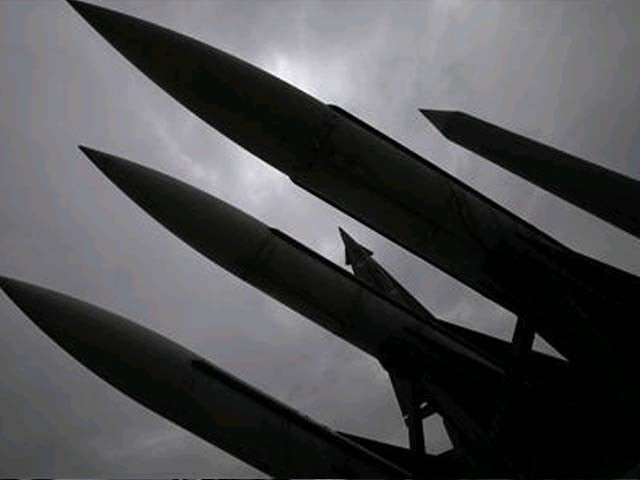“The group of Obama’s running around and talking about meaningless sanctions until today is highly laughable.”
Stated the North Korean Foreign Ministry spokesman after conducting the fifth and the biggest nuclear test.
Was calling Obama’s push for the sanctions ‘laughable’, sheer defiance on North Korea’s part, or something else?
Thereby hangs a tale.
It all started in 1974 when India was caught red-handed making a nuclear bomb, using the nuclear material provided by USA and Canada for peaceful purposes under bilateral agreements. America and the other six governments inferred that the Nuclear Non Proliferation Treaty (NPT) would be insufficient to prevent nuclear proliferation and formed an informal ‘nuclear cartel’ group.
It was India’s undercover nuclear activities that pushed America to establish the Nuclear Supplier Group (NSG). Thus, USA banned India from international civil nuclear commerce. For decades, NSG barred India from international civil nuclear trade until the US started to compromise over its non-proliferation policies. It is puzzling that the country that barred India from its undeclared nuclear activities outside the NPT is now leading the efforts to persuade other NSG members to grant a waiver to India when it is not a signatory of NPT.
Why does the USA compromise its non-proliferation policies?
During the Cold War, when the US had locked its horns with the Soviet Union, the US policy makers decided to engage Pakistan in a proxy war against the Soviet Union. The US National Security Adviser, Zbigniew Brzezinski articulated the stance most pithily in an argument with President Jimmy Carter,
“Our security policies cannot be dictated by our non-proliferation policies.”
So Secretary Brown declared in 1980,
“Our big problem with Pakistan was their nuclear program. Although we still object to their doing so, we will now set that aside for the time being and concentrate strengthening Pakistan against potential Soviet action.”
Though the USA still has great problems with India’s undercover nuclear activities, it is adopting the same approach; it has been focusing on strengthening India against rising China by building its nuclear muscle. This US dual approach to prefer its security policy over the nuclear non-proliferation campaign has made US nuclear non-proliferation efforts laughable.
It is, in fact, America’s “contain China” policy (that Bush administered) which cleared all hurdles for India in order to gain membership in the NSG. It was a gruelling task. Opposition in the US Congress and in India was removed, the India-International Atomic Energy Agency (IAEA) agreement was reached, and a number of countries were persuaded.
During the NSG meeting at Vienna, from the president down, every top US official was deployed to run down a diplomatic marathon in order to cajole and persuade the holdouts. Opponents of the exemptions were peeled off, with the Japanese, the Norwegians, the Dutch, and the New Zealanders all folding.
George W Bush called the Prime Minister of Ireland, Taoiseach Brian Cowen and secured Ireland’s consent. Condoleezza Rice, during her landmark visit to Libya, placed a call to the German Foreign Minister, Frank-Walter Steinmeier, who managed to track Ursula Plassnik down. Condolezza instructed Plassnik to agree.
That was a green light for India, but China’s principled stance ruined everything for India. Indeed, Beijing provided discreet support to the contenders of the deal to resist US pressure. At this stage, China supported the European opponents of the deal, and their resistance to it caused minor panic for New Delhi. In Vienna, the focus of nuclear diplomacy shifted mainly between Beijing and Washington.
Hu Jintao and Wen Jiabao had been avoiding calls from the Indian prime minister but are now on the spot. Condolezza Rice reached the Chinese foreign minister and instructed him not to block the deal. The Chinese started to speak in a language that opened doors for a criterion-based membership in order to seek a similar waiver for Pakistan, too, that attracted near-complete opposition from other NSG members.
This shut doors for India and they were denied the NSG membership.
Afterwards, Obama’s administration ran the same diplomatic marathon, but it couldn’t succeed as the criterion-based approach raised many voices against US’s discriminatory stance. In the following meeting of NSG, particularly the latest one, even the supporters of India, Russia, Turkey and Australia denied to grant an unjust and discriminatory waiver to India.
Obama was the champion of the non-proliferation efforts and he even advocated for Global-Zero that calls for elimination of all the nuclear weapons. But he, too, compromised over non-proliferation policies and stood by America’s tradition of favouring a country whenever America was to contain its “rival.” This approach of the US to compromise its liberalist principles over its realistic policies is a mockery of its own liberal values and becoming a stalwart against nuclear proliferation.
Therefore, it is not surprising if North Korea finds Obama’s nuclear non-proliferation policies laughable and conducts the biggest nuclear test, which is lethal for global peace.



COMMENTS
Comments are moderated and generally will be posted if they are on-topic and not abusive.
For more information, please see our Comments FAQ